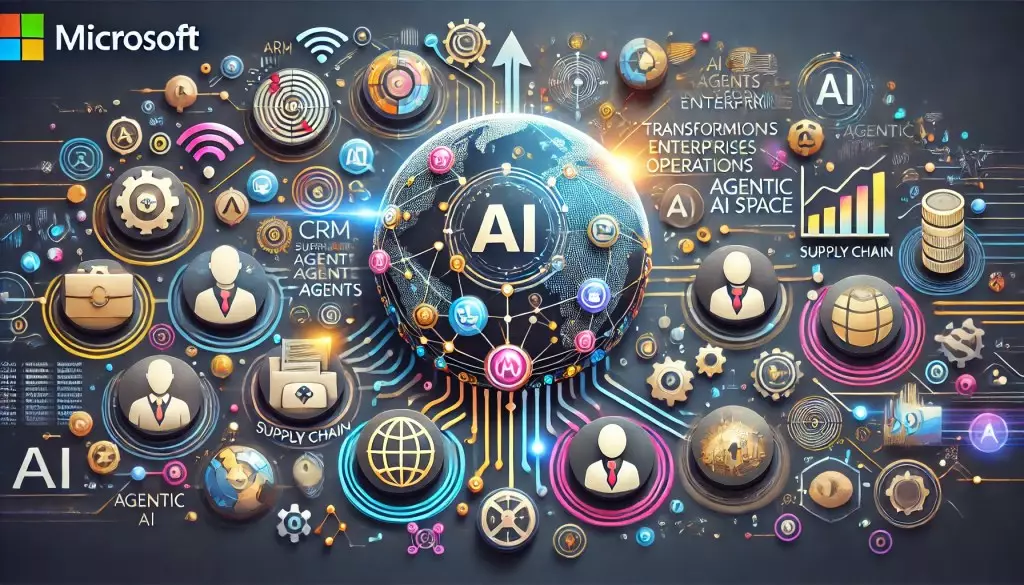In a recent announcement at Ignite 2024, Microsoft has set a new benchmark for artificial intelligence in the enterprise sector by introducing ten autonomous AI agents. This groundbreaking development positions Microsoft as a forerunner in leveraging AI to streamline core business functions. Unlike competitors that have focused on limited AI applications, Microsoft is rolling out a robust ecosystem aimed at transforming how organizations approach their operational workflows.
Bridging the Gap Between Theory and Practice
Historically, enterprise AI has danced solely in the realm of theoretical possibilities, often mired by the challenges of implementation and integration. Microsoft’s new autonomous agents represent a critical shift, as they are designed for immediate application in various business settings. These ready-to-deploy solutions span crucial areas like customer relationship management (CRM), supply chain optimization, and financial processes, minimizing the need for extensive customization. Such pre-configured agents stand in stark contrast to traditional toolkits that often require significant time and resources to adapt to specific business needs.
Microsoft’s Strategic Positioning Against Competitors
By leveraging its extensive ecosystem of productivity tools, Microsoft has positioned itself ahead of traditional competitors like Salesforce and ServiceNow. While these companies offer functional AI solutions, none have achieved the level of integration that Microsoft has formulated. With 1,400 third-party connectors and the capability to interact with over 1,800 large language models, Microsoft offers a comprehensive platform that provides much-needed scalability for enterprises. This flexibility is essential, as businesses increasingly require AI tools that can adapt quickly to changing demands.
Redefining the Expectations of AI in the Workplace
As Microsoft rolls out its suite of autonomous agents, the traditional landscape of enterprise software is being redefined. The capabilities of these new agents, such as lead qualification in CRM and time management optimization, challenge established startups and create a substantial need for innovative responses. This shift not only prompts seasoned players to rethink their strategies but also drives new startups to innovate in areas that were once dominated by legacy systems. Microsoft’s proactive approach in embedding AI deeply within its offerings signals a new paradigm for operational excellence.
One of the most significant advantages of Microsoft’s agents is their design, which facilitates easy adoption across organizations. The hands-on accessibility of these autonomous agents enables firms to create, modify, and deploy solutions without requiring extensive technical resources. This alleviates one of the common barriers that have hindered enterprises from engaging with AI. As a result, the potential for widespread deployment is reinforced by Microsoft’s commitment to reducing the complexity associated with integration.
The Shift in Value Proposition for Large Language Models
Microsoft’s strategic shift in pricing from “per token” to “per message” and, potentially, to “per outcome” values reflects a critical evolution in how enterprises might perceive and evaluate large language models (LLMs). While raw outputs have traditionally been the primary value proposition for LLMs, this new focus on outcomes underscores a transition towards delivering meaningful business results. Organizations will increasingly look for AI solutions that generate tangible improvements in productivity and efficiency rather than simply generating text.
Despite Microsoft’s dominant position, the competitive landscape remains dynamic, with major players such as Google and Amazon Web Services (AWS) not far behind. These firms are continuously innovating, developing their capabilities within the AI framework. Although Microsoft’s comprehensive suite of offerings has put it ahead for the moment, the landscape is susceptible to rapid changes. Ongoing technological advancements and new market entrants could disrupt Microsoft’s lead.
The introduction of Microsoft’s autonomous AI agents marks the beginning of a new era in enterprise solutions, where AI is not just an accessory but rather a foundational component of operation. By breaking down barriers to deployment and redefining value propositions, Microsoft is catalyzing a shift in how companies leverage AI within their workflows. As organizations begin to fully embrace these innovations, the transformative potential of AI in the workplace may soon be fully realized, with Microsoft at the helm guiding the future direction of enterprise technology.


Leave a Reply